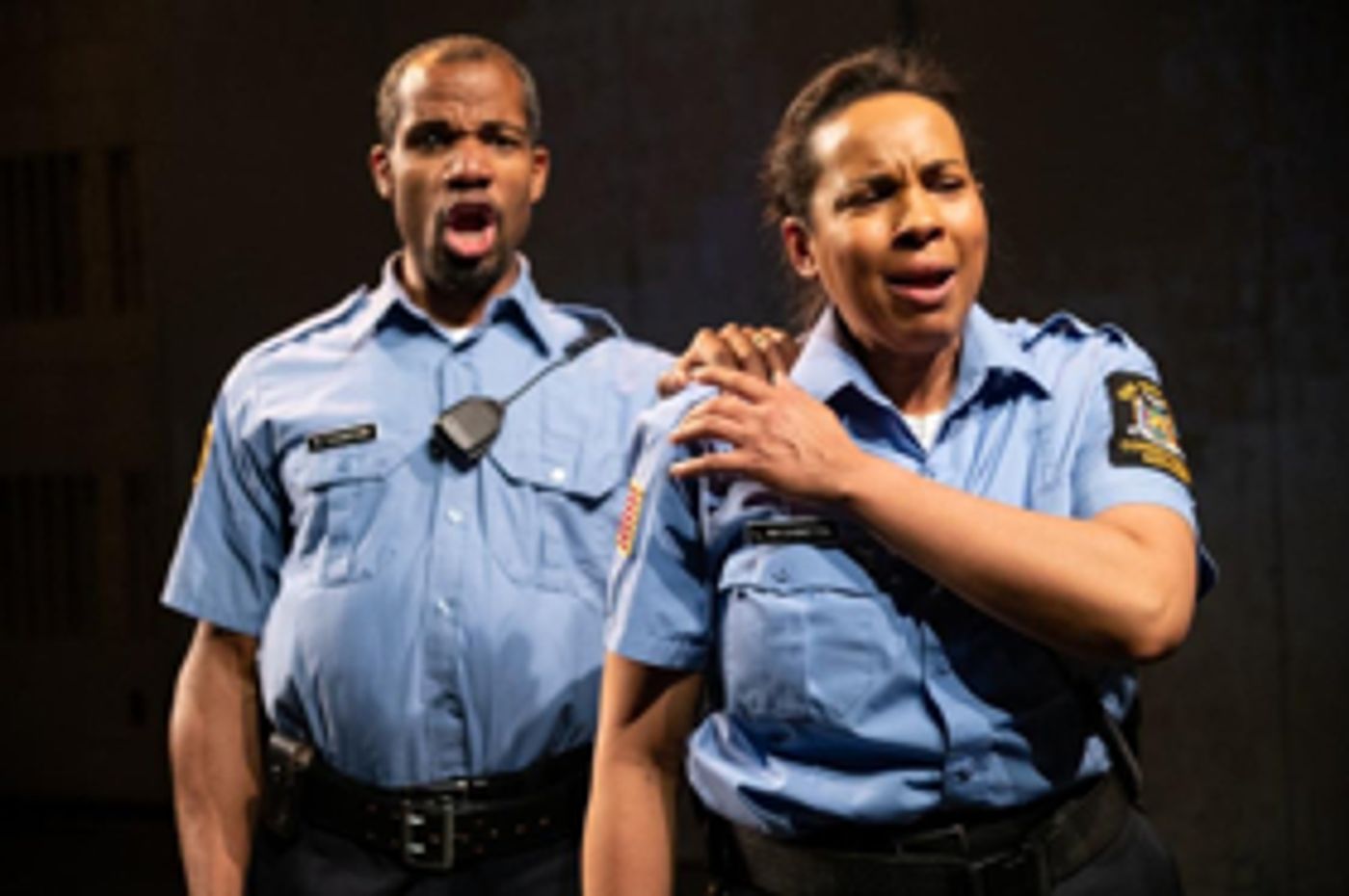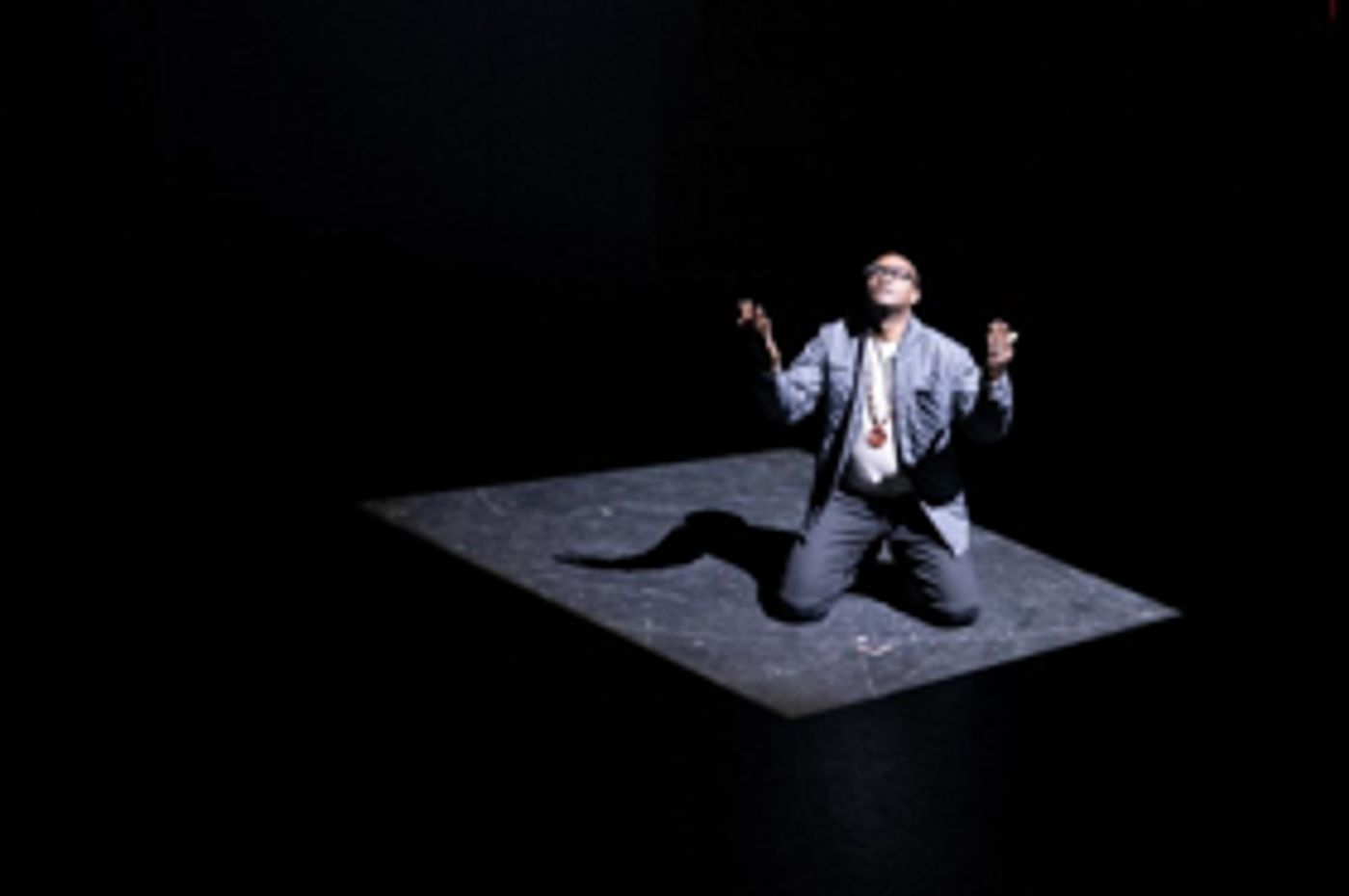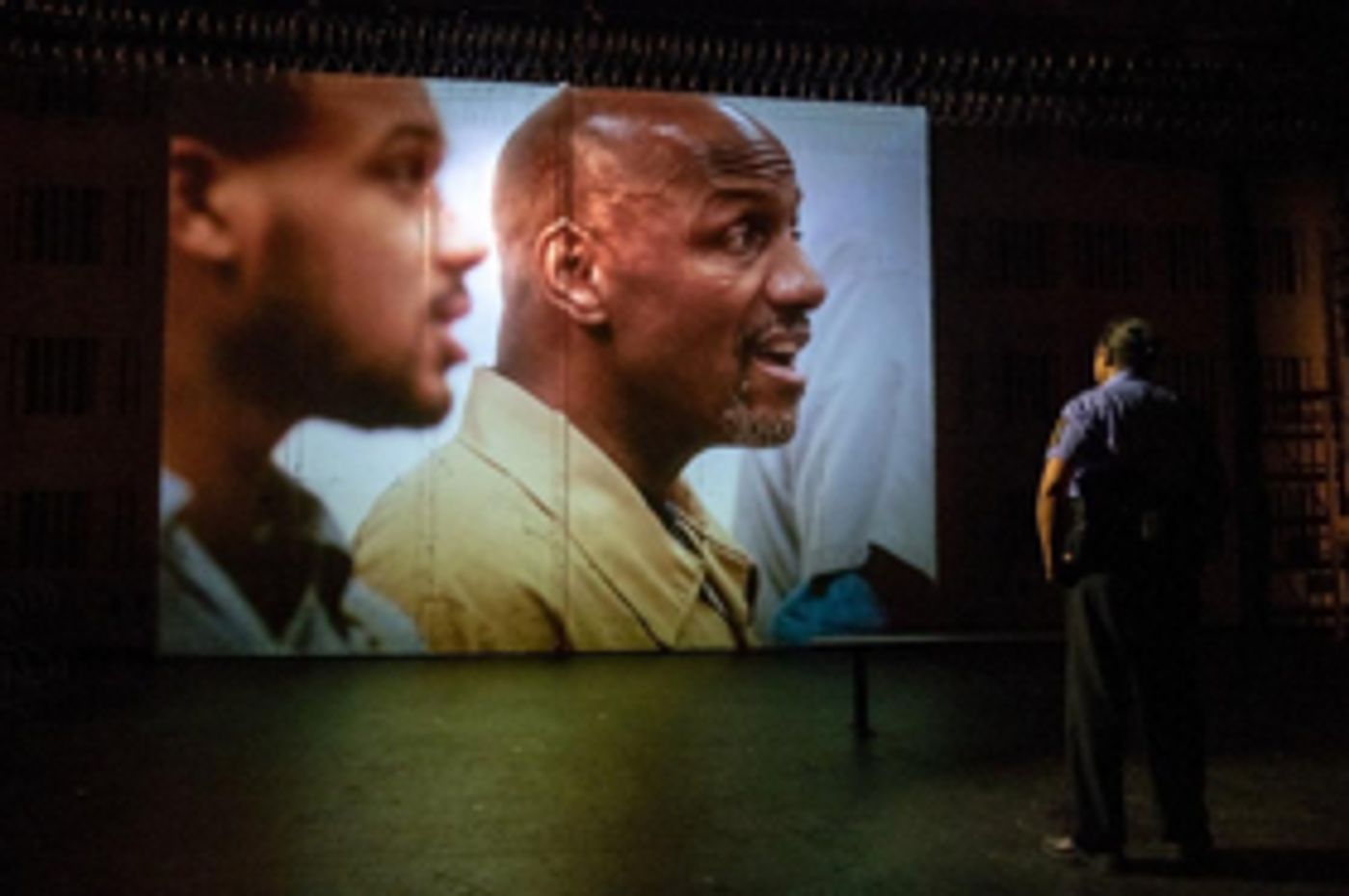Review: 'Orange' is the New FIDELIO from Heartbeat Opera at NY Opera Fest

Photo: Russ Rowland
Despite some great music, nobody ever said that Beethoven's FIDELIO is an easy opera to love.
Yet, the reduced, revised and reconfigured 90-minute version that Heartbeat Opera premiered the other night--as part of this year's NY Opera Fest from the New York Opera Alliance--showed some fearless work that was somehow true to the original yet very current.
This tale of the rescue of a political prisoner, Florestan (here, Stan), by his wife, Leonore (here, Leah), disguised as a prison guard, will always work, whether in the original 18th century Spain or in these times of Black Lives Matter. And the powerful use of a chorus of prisoners--represented in the production by projected work of actual prison choruses from around the Midwest--was a master stroke.

The composer had some long struggles with it, writing in a form that wasn't natural to him--it would be his only opera, and he sometimes felt caught between heroic opera and opera buffa--and he had already lost 60 percent of his hearing by 1801. Just as important, the Austrian censors forced him and his librettist (Joseph Sonnleithner) to change the setting from the French Revolution--which, in 1805, still hit too close to home in a country occupied by the French--and set it in 18th century Spain. Yet, he managed to produce thrilling music,
On its own terms, I thought Ethan Heard's production, see at the Baruch Performing Arts Center, was more successful than the opera's most recent revival at the Met. The opera's spoken, colloquial dialogue, newly written by Marcus Scott and Ethan Heard, was performed in English, but the music was sung in the original German and managed to coexist well together. (Translation by Nick Betson.) The basic sets and corstumes were done by Reid Thompson and Valérie Thérèse Bart, respectively, with effective lighting by Oliver Wason and sound by Kate Marvin

Photo: Russ Rowland
The arrangement--and distillation--of the score by Daniel Schlosberg worked wonderfully, though I missed the powerful overture (Beethoven wrote four versions), which only appeared in snippets toward the end of the piece. The music ensemble--two cellos, two horns and two pianos, including conductor Schlosberg--were heard to extraordinary effect.
This version jettisoned a couple of major characters without harming the flow of the work and, perhaps, improving it in some ways. One was Don Ferrando, the prime minister who, basically, rides in on his white horse at the end of the opera to save Leonore and Florestan and bring the downfall of the evil prison warden. The other, more important to the shape of the original, was Jaquino, the jailer's assistant. This character existed for comic relief, providing a foil in the relationship between the jailer's daughter, Marzelline, and Fidelio (Leonore disguised as a boy to get a job inside the prison).
In this new version. Marzelline (now Marcy) is a lesbian attracted to a no-longer-disguised wife, now called Leah. While it may be understandable for the job of the jailer's assistant to be held by a woman, I thought it watered down the recognition scene: In the original, when the prisoner governor comes to kill Florestan, Fidelio/Leonore tells him, "You'll have to get through his wife first," unveiling her drag persona. Now, when evil warden comes to kill Stan and she says the line, the drama is reduced, as she is simply unmasked as more than an assistant but the prisoner's wife.
For the most part, the cast worked quite well in putting across Beethoven's music, though the illness of tenor Nelson Ebo, cut somewhat into his impact as Stan; he nonetheless cut a dramatic figure. Soprano Kelly Griffin made an incisive Leah, powerful yet warm and soprano Malorie Casimir was a winning Macy, using her light voice smartly, while bass-baritone Derrell Acon made a dignified, smart Roc (the jailer). While bass-baritone Daniel Klein did well as Pizarro, I wished for a more dramatically fearsome sound for this reprehensible character.
As mentioned earlier, Beethoven's wonderful choral writing was performed, and projected, by several outstanding singing groups active in American prisons, close to 200 singers, who sang with power and hope. The groups represented were the Oakdale Community Choir at the Iowa Medical and Classification Center, director and founder Mary L Cohen from the University of Iowa; Kuji Men's Chorus from the Marion Correctional Institution in Ohio, director Catherine Roma; Hope thru Humanity Women's Choir, Dayton (OH) Correctional Institution, director Catherine Roma; Ubuntu Men's Chorus, London (OH) Correctional Institution, director Catherine Rome; East Hill Singers, Lansing (KS) Correctional Facility, conductor Kirk Carson; and Voices of Hope, Minnesota Correctional Facility, Shakopee, conductor Amanda Weber.
The opera now ends with a coup de theatre that I won't give away, but it ended the opera on a sad and touching note rather than the joy of the original.
Reader Reviews
Videos

